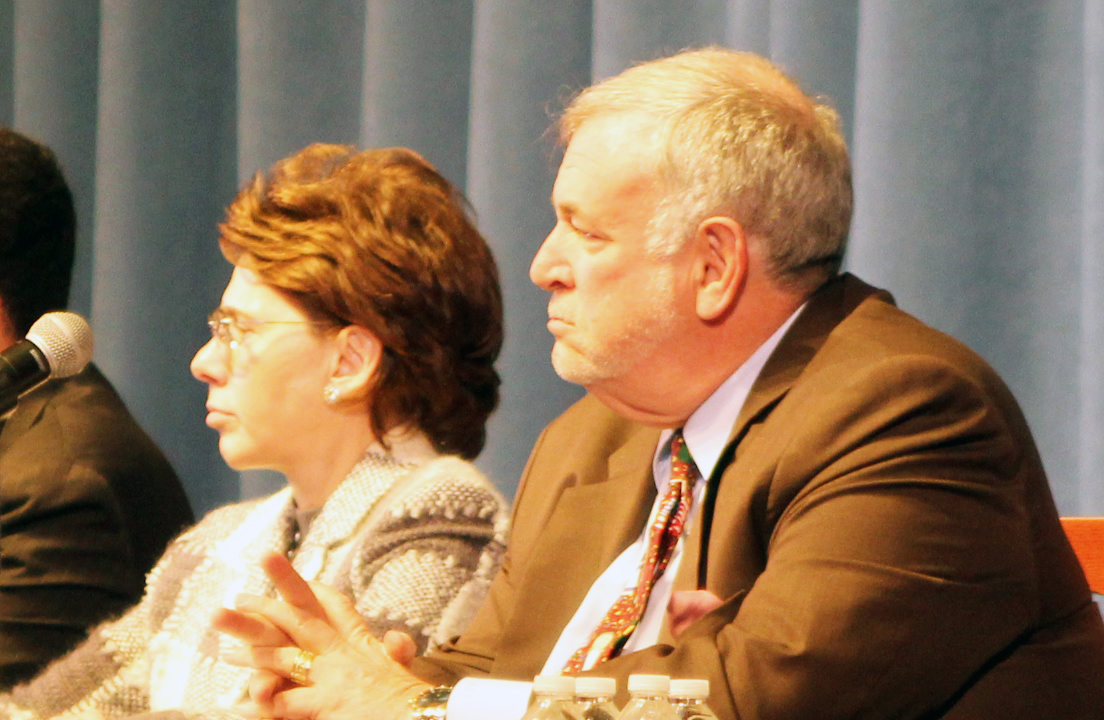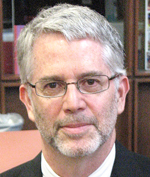Guest Column: The folks in Albany want us all to step aside

Ordinarily, letters exchanged between governors and high-level bureaucrats don’t make it to the top of The New York Times bestseller list. But, sometimes, one comes across a letter that makes one sit up and say, “Whoa, what’s going on here?” I refer to a recent letter about education reform sent by Board of Regents chancellor Merryl Tisch to Gov. Cuomo’s office. (It was also signed by the new “acting” commissioner of education, Elizabeth Berlin.)
What’s striking in Ms. Tisch’s recommendations to the governor is the unstated proposition that there is a big difference between public education and state education, and that state education is far superior. From the chancellor’s point of view, public education hasn’t just failed poor, black and Hispanic children the most, but has somehow even failed kids in Great Neck, Jericho, Scarsdale and Garden City — even though many of them go on to the best universities in the nation.
The remedy? State education.
Public education is an old and very familiar institution. To be sure, school districts get their authority from New York State. But despite state guidance, school boards, and the administrators and teachers who work for these boards, have broad latitude to define curriculum and instruction.
These boards and the superintendents they hire have authority over hiring and evaluating teachers and principals. The boards have a duty to propose a spending plan every year to district voters. Public education, in short, means “local control.”
Public education is democracy in action. It has all the virtues and vices of our form of self-government. This democratic system has worked well in many districts, especially in those whose residents are relatively wealthy and thus able to afford the resources commonly found in thriving schools.
But in poorer districts, and especially in large cities, democratic “local” control of education has not worked as well as we would all wish. The state Legislature has wrestled with this problem for generations and, in fact, is now under a Court of Appeals order to address fiscal inequities among districts.
Public education is a complex, immense, difficult institution. Poverty and wealth more than anything tend to determine the outcome of its efforts.
But it’s also among our most democratic institutions.
Ms. Tisch, most of her non-elected colleagues and our current governor, however, seem to have arrived at the conclusion that local control of education does not, and cannot, work.
These self-styled reformers want New York State itself, through the administrative instrumentality of the State Education Department, to improve education, since local districts have failed.
So, what does “state,” as opposed to “local,” control mean? First, as a result of previous legislative action, namely the 2 percent cap on tax levy increases, democracy is out the window because a minority of residents has more power than the majority when it comes to deciding how much money will be spent in a given district.
Now comes the chancellor’s suggestions that locally elected school boards should no longer have control over determining whether teachers and principals do a good job and that all teachers and principals who do not meet the state’s standard of successful teaching or supervising two years in a row must lose their jobs.
Chancellor Tisch suggests that the content all children must learn and the methods teachers must use to teach that content will be determined by the state, not local residents in accord with professional educators, acting through democratically elected school board members. She suggests that charter schools, over which local residents have little if any control, would be completely free to flourish (or not!) and to replace democratically run local schools.
These charters, it should be emphasized, do not have to serve all children the way local, democratic and free schools must. And, as we all know by now, the education department will use tests purchased from private companies as the principal tool to determine whether kids are thriving, and thus whether their teachers ought to remain in the classroom.
So the non-elected chancellor and the current governor believe local control of education has failed. The great experiment is dead. What will take its place is a technocratic process so complex that it is almost impossible for parents, residents and educators to understand — much less embrace.
This opaque and exceedingly cumbersome and expensive process will be orchestrated from Albany. Education department bureaucrats in charge of this new system have little useful knowledge of the institution they will operate.
Local school boards, residents and parents and the staffs hired by the school boards will no longer play a central role in educating the young. This radical change, sadly, rests more on the arrogant self-regard of the chancellor, the governor and their allies than it does on any realistic assessment of the problems facing children around the state.
Poor children, regardless of race, suffer the ill effects of an education system that fails them, and has failed them for generations. But replacing democratic, local control of education with state technocratic education being pushed by a group of wealthy, non-elected reformers whose plans to improve education make sense to few people other than themselves and their paid acolytes, and whose concrete proposals come largely from for-profit companies hungry to profit off public funds, is deeply anti-democratic, not to mention foolhardy. Ms. Tisch and Gov. Cuomo have lost faith in democracy.
They would rather rely on people whom they regard as smart and well-connected — whether or not they know anything about schooling — rather than on parents, residents, experienced educators, scholars and students. To them, education must be taken out of the hands of teachers, principals and superintendents chosen by parents and residents, and instead be entrusted to companies that know one thing very well: how to make profits.
Never mind that they have little idea about how to treat children. Will state education end poverty by educating so many young people to be “college and career ready” that U.S. companies simply cannot survive unless they hire these people at high salaries? Will Ms. Tisch’s tests transform life in Bedford-Stuyvesant and upstate New York?
Will the Roosevelt and William Floyd School districts morph into new Cold Spring Harbors? Should all districts be forced to emulate certain kinds of districts rather than retain their own identities? Just trust her.
She’ll take care of the children, especially the poor ones, if we just stop whining about the fact that she has no expertise or experience to accomplish something no one else has come close to solving in more than 60 years.
It will take more, much more, than lots of private money and friends in high places to do right by all the children now growing up in New York.
 Steven R. Cohen, Ph.D., is superintendent of schools for Shoreham-Wading River School District. He can be reached at (631) 821-8105.
Steven R. Cohen, Ph.D., is superintendent of schools for Shoreham-Wading River School District. He can be reached at (631) 821-8105.





